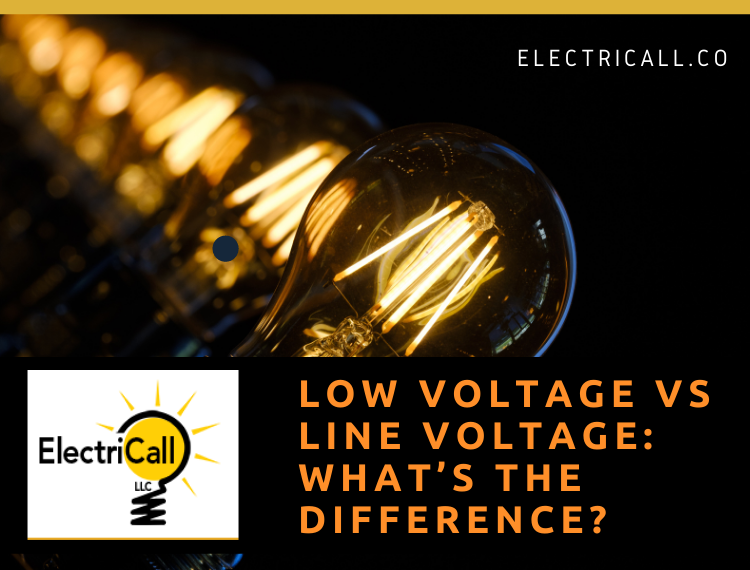
Before choosing the best lighting for commercial or residential infrastructure, you have to first consider the voltage type the building has. There are two kinds of voltages and knowing both will be useful when exploring your options. It will also help you when hiring an electrician in Arvada, CO to perform electrical works or home rewiring jobs on your property.
What does line voltage mean?
Line voltage refers to the standard voltage which is 120 volts that can be found on commercial and residential properties. It is common in most residential houses in the United States.
Since this is the standard voltage for most electrical outlets, line voltage fixtures commonly do not need a transformer to function. It works just about anywhere a low voltage fixture can be set up. Most often, it is integral to the infrastructure.
What does low voltage mean?
When talking about low voltage, unlike line voltage, this type requires a transformer for the lighting system to work properly. Generally, low voltage lighting systems only range from 12 to 24 volts. However, you will also notice that a low voltage fixture has a transformer installed relatively close to it.
Some examples of low voltage lighting include display lighting or anywhere it is difficult to have a standard voltage electrical wiring like landscape application.
What are the other differences between a lighting system that has line voltage or low voltage?
The electrical current enabling light fixtures, devices, and equipment to work play a significant role in our day-to-day life. Not having sufficient voltage in your home or office may result in electrical issues that could hinder your routine or work. That said, we encourage you to hire a professional electrician nearby to perform an electrical inspection on your property at least once every six months.
Other differences between line voltage and low voltage include:
- Lifespan
Although most people will say that low voltage has a longer lifespan compared to line voltage, you have to remember that it cannot work without a transformer. Depending on the type of transformer and its operational intensity, in most cases, transformers would require constant maintenance and repair. So in reality, both actually have almost the same lifespan.
- Quality of light
Line voltage allows the use of different types of light bulbs such as fluorescent, incandescent, sodium or orange street lights, and metal halide. These bulbs range from 60 to 250 watts, which is perfect for either indoor use or outdoor application. And since this type has high voltage, it produces a warmer and more diffused light.
Low voltage is considered an energy-efficient and low-cost alternative. Because low voltage bulbs are connected to a power pack, they typically have lower wattage that makes them efficient and last long. What that means is that low voltage fixtures can provide more consistent illumination. The low voltage lighting system also looks more natural and sharp than the line voltage lightings that tend to be more diffused.
- Size and style
Low voltage fixtures are usually smaller compared to line voltage lighting systems. That is thanks to its smaller filaments and the use of a transformer. On the contrary, line voltage fixtures are so much bigger in size and style because they have to be able to handle colossal amounts of electric current.
Understanding the differences between voltages will allow you to make informed decisions about the lighting systems you should use. But, it is always the best option to have a skilled and seasoned Arvada electrician assist you.
- Movability
The low voltage lighting system is usually not permanent, unlike the standard line voltage. That said, it is quite easy to set up or re-arrange when needed. And you can add more fixtures to the system as long as the transformer can handle it.
- Safety
The current that flows through the transformer is less powerful than the line voltage. This feature makes the low voltage more attractive to use, especially for outdoor and landscape applications.
To learn more about what makes low voltage different from line voltage, or if you have any electrical issues that need immediate troubleshooting, contact us. ElectriCall offers a variety of home electrical repair services to homeowners in Arvada, CO.